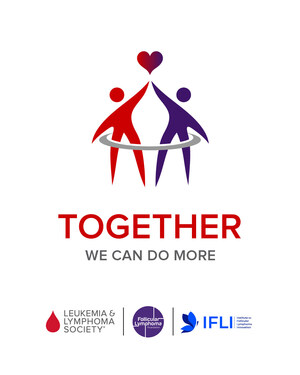WHITE PLAINS, N.Y., July 11, 2011 /PRNewswire/ -- The Leukemia & Lymphoma Society (LLS) is taking an aggressive and proactive approach to tackling the challenge of improving outcomes for cancer patients with particularly urgent needs.
(Logo: http://photos.prnewswire.com/prnh/20110215/NY48642LOGO )
Earlier this year, LLS identified three underdeveloped but promising areas of research and sought proposals to help stimulate more academic research in these areas: the malignant stem cells in acute myelogenous leukemia (AML) and myelodysplastic syndromes (MDS), non-cutaneous T-cell malignancies, and high-risk myeloma. Further, a quality of life initiative – a request for research focused on long-term and late effects of blood cancer therapies - was extended into a second year.
Today, LLS announced the awarding of 17 grants in response to these RFPs under its Translational Research Program, a program designed to help accelerate the movement of promising discoveries from the lab to the clinic. The three-year grants represent a total investment of $10.2 million in the following investigations:
LLS also announced the awarding of an additional 19 TRP grants, totaling $11.4 million, to scientists working in other areas of blood cancer research.
"LLS will continue to accept applications from the world's best and brightest scientists to advance progress in all areas of blood cancer research, and award grants based on merit," said Louis DeGennaro, Ph.D., LLS chief mission officer. "But we are also taking a more strategic approach by identifying and prioritizing areas of need and directing funding to research that shows the most promise for improving survival and quality of life for patients with these particular diseases."
- |
The leukemic stem cell in AML and MDS and the identification of potential targeted therapies: |
||
-- |
Craig Jordan, Ph.D., University of Rochester Medical Center: Modulating oxidative state to target leukemia stem cells |
||
-- |
Donald Kufe, M.D., Dana Farber Cancer Institute: Targeting the MUC1-C oncoprotein in AML stem cells |
||
-- |
Ravindra Majeti, M.D., Ph.D., Stanford University: Bispecific antibodies targeting CD47 on AML stem cells and non-Hodgkin lymphoma cells |
||
-- |
Anjana Rao, Ph.D., Dana Farber Cancer Institute: Linking metabolism, epigenetic changes and cancer: TET2, IDH and AML |
||
-- |
Aaron Schimmer, M.D., Ph.D., Princess Margaret Hospital, Toronto: Inhibiting mitochondrial protein synthesis to target leukemia stem cells |
||
-- |
Roger Strair, M.D., Ph.D., The Cancer Institute of New Jersey: NF-kB Inhibition in AML |
||
-- |
Amit Verma, M.D., Albert Einstein College of Medicine: Characterization of MDS disease initiating stem cells |
||
- |
Novel therapeutic strategies for non-cutaneous T-cell lymphoproliferative disorders: |
||
-- |
Eduardo Davila, Ph.D., University of Maryland: Pattern recognition receptors and T-cell leukemia progression |
||
-- |
Adolfo Ferrando, M.D., Ph.D., Columbia University Medical Center: The genetics of peripheral T-cell lymphomas |
||
-- |
Angel Pellicer, M.D., Ph.D., NYU Langore Medical Center: Development of a novel therapeutic for Rgr expressing T-cell malignancies |
||
- |
Development of therapeutic strategies for the high risk myeloma patient: |
||
-- |
Varsha Gandhi, Ph.D., MD Anderson Cancer Center: Targeting Met receptor tyrosine kinase in high risk myeloma patients |
||
-- |
Fenghuang Zhan, M.D., Ph.D., University of Utah School of Medicine: Targeting SCF- CKS1B complex in aggressive myeloma |
||
- |
Mechanisms underlying long term and late effects resulting from cancer treatment and the development of measures to significantly reduce or prevent these toxicities |
||
-- |
Saro Armenian, D.O., City of Hope Comprehensive Cancer Center: Pharmacologic prevention of heart failure in survivors of childhood cancer |
||
-- |
John Koreth, M.D., Dana Farber Cancer Institute: Ultra-low-dose daily subcutaneous interleukin-2 for control of chronic GVHD |
||
-- |
Jennifer Levine, M.D., New York Presbyterian/Columbia: Longitudinal assessment of ovarian reserve in adolescents with lymphoma |
||
-- |
Elizabeth Raetz, M.D., NYU Langore Medical Center: Biological predictors of osteonecrosis in acute lymphoblastic leukemia |
||
-- |
Shabbar Alibhai, M.D., University Health Network, Toronto: QOL, physical function, and disability in long-term AML survivors |
||
About The Leukemia & Lymphoma Society
The Leukemia & Lymphoma Society ® (LLS) is the world's largest voluntary health agency dedicated to blood cancer. The LLS mission: Cure leukemia, lymphoma, Hodgkin's disease and myeloma, and improve the quality of life of patients and their families. LLS funds lifesaving blood cancer research around the world and provides free information and support services. Founded in 1949 and headquartered in White Plains, NY, LLS has chapters throughout the United States and Canada. To learn more, visit www.LLS.org or contact the Information Resource Center at (800) 955-4572, Monday through Friday, 9 a.m. to 6 p.m. ET. www.lls.org.
Contact:
Andrea Greif
(914) 821-8958
[email protected]
SOURCE The Leukemia & Lymphoma Society
WANT YOUR COMPANY'S NEWS FEATURED ON PRNEWSWIRE.COM?
Newsrooms &
Influencers
Digital Media
Outlets
Journalists
Opted In




Share this article